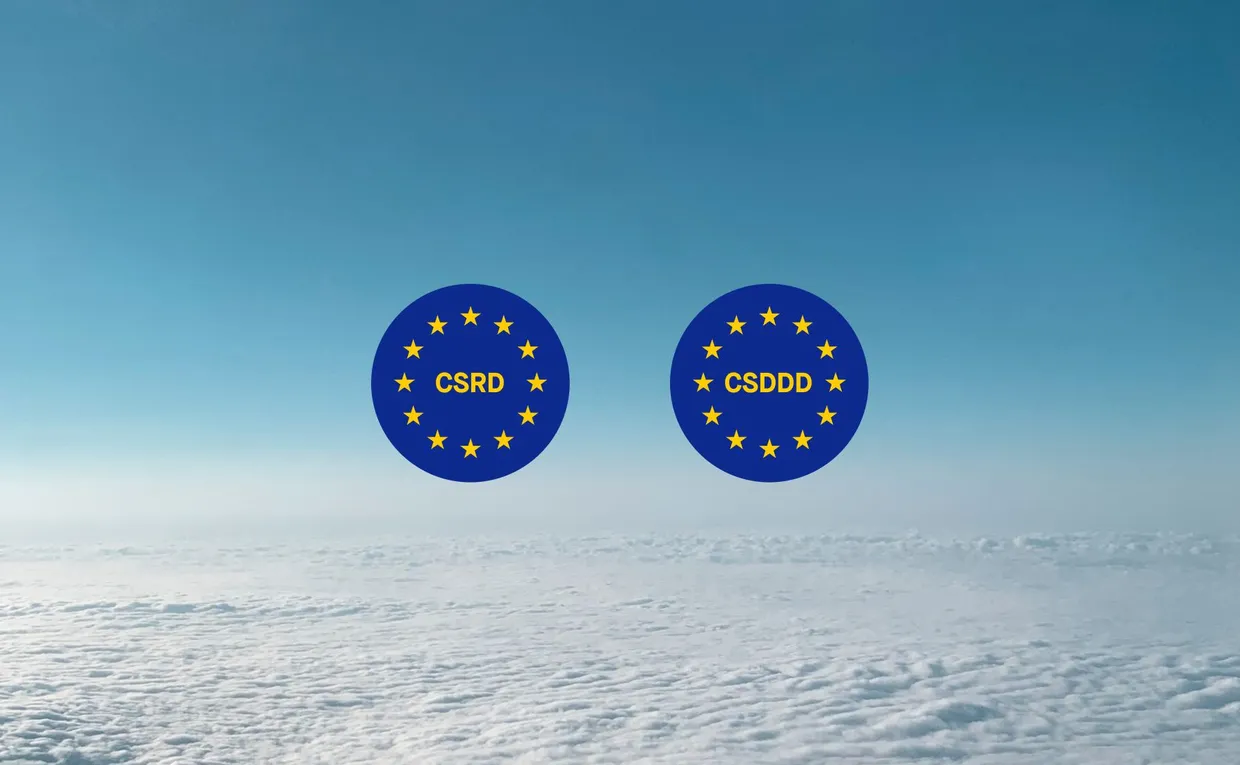At Sweep’s flagship event, Climate Compass, we spoke to leaders at Withings, Safran, Climeworks and Lyreco about the role of the C-level team in implementing a company’s climate strategy. Here’s what they had to say.
Speakers:
-
Renaud Bettin, VP of Climate Action – Sweep
-
François Regnier, CFO – Withings
-
Frédéric Lino, Purchasing VP – Safran
-
Julie Gosalvez, CMO – Climeworks
-
Robert Daniluk, Sustainability Director – Lyreco Group
To drive effective climate action, your C-Suite must become climate action heroes – with each member taking responsibility for their scope and area of influence. Here’s how our panel of business leaders have been driving climate action across their companies:
The CFO: Balancing profitability and sustainability
Francois Regnier, highlighted the growing importance of extra-financial reporting alongside financial reporting. Shareholders are increasingly demanding climate-related data, making it essential for CFOs to focus on sustainability. “Today, extra-financial reporting is just as important as financial reporting. It’s a big evolution for finance.”
But finding the right balance between short-term profitability and long-term sustainability goals can be challenging. It requires a significant evolution in the finance function, where sustainability is integrated into financial decision-making processes.
The CPO: Ensuring suppliers’ participation in climate action
Frederic Lino, acknowledged the significant carbon footprint associated with the procurement function. With hundreds of suppliers, it’s challenging to tackle every climate-related issue. Instead, he emphasized the importance of a strategic approach. By identifying and involving a select group of strategic suppliers – in his case around 11 percent of the total – he’s able to ensure their active participation in the decarbonization process. He also emphasized the need to and drive efficiency.
“The key for us as procurement leaders is to know where to focus our sustainability efforts.”
The CMO: Driving credible decarbonization
Julie Gonsalvez, CMO of Climeworks, emphasized the pivotal role of Chief Marketing Officers (CMOs) in driving credible decarbonization. As the voice of the brand, CMOs need to listen attentively – to the science, consumers, and their own intuition. It’s crucial to align marketing strategies with long-term sustainability goals.
“We need to listen to consumers – but at the same time we need to design for the long term.”
By inspiring people and fostering a sense of purpose, CMOs can drive positive change within their organizations while supporting sales targets.
The CSO: Empowering sustainable transformation
Robert Daniluk, highlighted the rapid shift in the importance of sustainability in recent years. He sees the role of sustainability leaders as catalysts for change. They must support all departments within the organization by translating complex sustainability terms, such as CSRD and SFDR into practical guidance. “I see sustainability through the metaphor of a library. In the past – for many, many years, almost nobody visited. In fact, the library was closed. Now, everyone is taking out books!”
By ensuring clear communication and practical implementation of sustainability initiatives, they can help drive meaningful transformation across the organization.
Key takeaways
Each member of the C-Suite brings unique skills and perspectives to the table, contributing to the overarching goal of tackling climate change. The CFO’s focus on balancing profitability and sustainability, the CPO’s strategic approach to decarbonization, the CMO’s role in brand credibility, and the CSO’s role as a catalyst for change all play critical parts in the successful implementation of a company’s sustainability strategy.
Our software can help foster climate collaboration across your organization. Here’s how.




